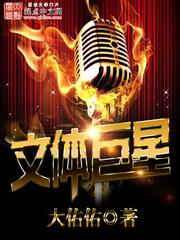CHAPTER XVIII
您可以在百度里搜索“Now It Can Be Told 艾草文学(www.321553.xyz)”查找最新章节!
CHAPTER XVIII
In those long days of trench warfare and stationary lines it was boredom that was the worst malady of the mind; a large, overwhelming boredom to thousands of men who were in exile from the normal interests of life and from the activities of brain-work; an intolerable, abominable boredom, sapping the will-power, the moral code, the intellect; a boredom from which there seemed no escape except by death, no relief except by vice, no probable or possible change in its dreary routine. It was bad enough in the trenches, where men looked across the parapet to the same corner of hell day by day, to the same dead bodies rotting by the edge of the same mine-crater, to the same old sand-bags in the enemy's line, to the blasted tree sliced by shell-fire, the upturned railway—truck of which only the metal remained, the distant fringe of trees like gallows on the sky-line, the broken spire of a church which could be seen in the round O of the telescope when the weather was not too misty. In “quiet” sections of the line the only variation to the routine was the number of casualties day by day, by casual shell-fire or snipers' bullets, and that became part of the boredom. “What casualties?” asked the adjutant in his dugout.
“Two killed, three wounded, sir.”
“Very well... You can go.”
A salute in the doorway of the dugout, a groan from the adjutant lighting another cigarette, leaning with his elbow on the deal table, staring at the guttering of the candle by his side, at the pile of forms in front of him, at the glint of light on the steel helmet hanging by its strap on a nail near the shelf where he kept his safety-razor, flash—lamp, love-letters (in an old cigar-box), soap, whisky—bottle (almost empty now), and an unread novel.
“Hell!... What a life!”
But there was always work to do, and odd incidents, and frights, and responsibilities.
It was worse—this boredom—for men behind the lines; in lorry columns which went from rail-head to dump every damned morning, and back again by the middle of the morning, and then nothing else to do for all the day, in a cramped little billet with a sulky woman in the kitchen, and squealing children in the yard, and a stench of manure through the small window. A dull life for an actor who had toured in England and America (like one I met dazed and stupefied by years of boredom—paying too much for safety), or for a barrister who had many briefs before the war and now found his memory going, though a young man, because of the narrow limits of his life between one Flemish village and another, which was the length of his lorry column and of his adventure of war. Nothing ever happened to break the monotony—not even shell-fire. So it was also in small towns like Hesdin, St.-Pol, Bruay, Lillers—a hundred others where officers stayed for years in charge of motor-repair shops, ordnance-stores, labor battalions, administration offices, claim commissions, graves' registration, agriculture for soldiers, all kinds of jobs connected with that life of war, but not exciting.
Not exciting. So frightful in boredom that men were tempted to take to drink, to look around for unattached women, to gamble at cards with any poor devil like themselves. Those were most bored who were most virtuous. For them, with an ideal in their souls, there was no possibility of relief (for virtue is not its own reward), unless they were mystics, as some became, who found God good company and needed no other help. They had rare luck, those fellows with an astounding faith which rose above the irony and the brutality of that business being done in the trenches, but there were few of them.
Even with hours of leisure, men who had been “bookish” could not read. That was a common phenomenon. I could read hardly at all, for years, and thousands were like me. The most “exciting” novel was dull stuff up against that world convulsion. What did the romance of love mean, the little tortures of one man's heart, or one woman's, troubled in their mating, when thousands of men were being killed and vast populations were in agony? History—Greek or Roman or medieval—what was the use of reading that old stuff, now that world history was being made with a rush? Poetry—poor poets with their love of beauty! What did beauty matter, now that it lay dead in the soul of the world, under the filth of battlefields, and the dirt of hate and cruelty, and the law of the apelike man? No—we could not read; but talked and talked about the old philosophy of life, and the structure of society, and Democracy and Liberty and Patriotism and Internationalism, and Brotherhood of Men, and God, and Christian ethics; and then talked no more, because all words were futile, and just brooded and brooded, after searching the daily paper (two days old) for any kind of hope and light, not finding either. Now It Can Be Told

